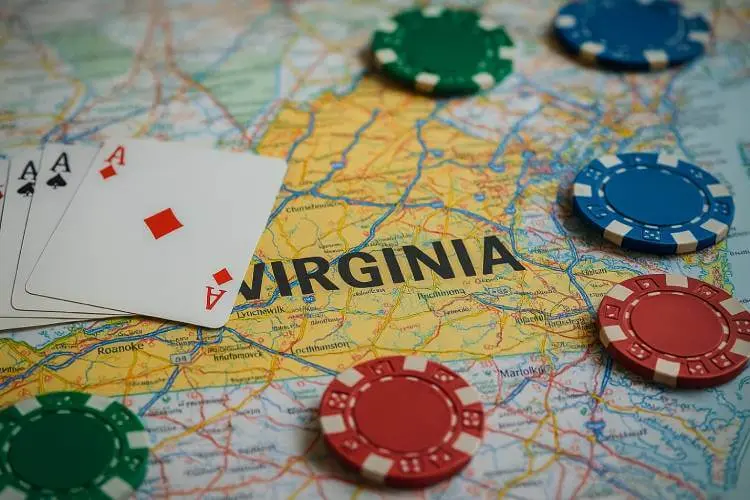Virginia Lawmakers Revisit Plans for Unified Gaming Commission as Casino Growth Expands Online


Virginia lawmakers are once again revisiting the idea of forming a central authority to regulate the state’s expanding gambling industry, one that now includes land-based casinos, charitable gaming, sports betting and online casinos. During a recent subcommittee meeting, officials from across the Commonwealth gathered to discuss the possible creation of a Virginia Gaming Commission, a move that could streamline oversight and set a clearer path for future expansion.
For several years, the idea of a standalone commission has surfaced and faded in legislative discussions. But with casino revenues rising and online gambling gaining national momentum, the issue is back in focus. Lawmakers agreed that as Virginia’s gaming landscape grows more complex, a unified regulatory body may be needed to ensure transparency, fairness, and responsible growth.
Casino Operators Highlight Local Impact
Representatives from all five licensed casinos, including the Hard Rock Casino in Bristol and Caesars Virginia in Danville, presented updates to lawmakers on how their projects have performed since opening. Both venues have become economic anchors for their communities, drawing visitors, creating local jobs, and generating millions in tax dollars.
Officials emphasized that casinos have provided a boost beyond gambling floors. Hotels, restaurants, and entertainment venues surrounding the properties have benefited from increased foot traffic. The Hard Rock Bristol, for example, continues to expand its permanent resort plans after success with its temporary facility, while Caesars Danville has quickly become a regional attraction for southern Virginia and neighboring North Carolina players.
Lawmakers said these results provide valuable insight as they evaluate whether future casino projects or digital gaming initiatives should move forward.
New Cities Join the Conversation
Beyond existing operators, new cities are positioning themselves to join Virginia’s gaming map. Addie Lingle, chair of the Winchester Economic Development Authority, asked the subcommittee to consider granting her city a casino operator’s license. Winchester’s proposal envisions a resort-style destination with gaming, events, and hospitality all under one roof.
Lingle said the project could serve as a hub for the northern Shenandoah Valley, drawing travelers from nearby Washington, D.C., and along Interstate 81. Although the city council has not voted on the plan, local leaders are eager to continue discussions with state officials.
The city of Fairfax has also expressed interest in a casino license. However, Lingle argued that Winchester’s central location makes it more accessible to both residents and interstate travelers. As the debate continues, state officials say they’ll consider factors such as regional demand, population size, and economic viability before expanding casino approvals.
Oversight Before Expansion
At the meeting, lawmakers also heard from the Virginia Lottery, which currently oversees casino operations. The agency outlined the challenges of managing the state’s growing gaming portfolio, from casino licensing to sports betting compliance, under a structure originally designed for lotteries.
Officials said the creation of a Virginia Gaming Commission would allow for more focused oversight as lawmakers continue to debate whether to legalize iGaming and online casinos.
Senator Mamie Locke, who previously introduced legislation to allow online casino play in Virginia, has emphasized that proper regulation must come first. Her proposal was tabled earlier this year to allow more time for study, but analysts estimate that legal iGaming could generate more than $5 billion in taxable revenue over five years.
Industry veterans such as David Rebuck, the former director of New Jersey’s Division of Gaming Enforcement, have told Virginia officials that the fears of online casinos hurting physical venues have proven unfounded. States that adopted both models, such as New Jersey and Michigan, found that online gaming often complements in-person casino visits rather than replacing them.
Balancing Growth and Responsibility
While the financial upside of expanding gambling is clear, not all stakeholders are ready to move forward. The Virginia Lottery has voiced concerns about taking on new regulatory duties without additional staff or resources. Some community and faith-based groups have also expressed worries that easier access to online gambling could lead to higher rates of addiction and financial hardship.
Supporters of the new commission argue that stronger oversight would directly address those risks. A dedicated regulatory body could standardize rules across all gambling sectors, improve data collection on problem gaming, and ensure that operators follow consistent standards for consumer protection.
If approved, the Virginia Gaming Commission would replace the Lottery’s current oversight role and serve as the state’s single authority for casinos, sports betting, charitable gaming, and future online platforms.
Looking Ahead to 2026
Lawmakers are expected to revisit the proposal during the 2026 legislative session, with many predicting that gaming regulation will become one of the session’s top economic topics. The outcome will determine how Virginia approaches both brick-and-mortar and online gaming over the next decade.
Since the first casino opened in Bristol in 2022, Virginia’s gaming market has evolved from a limited experiment into a major economic driver. Each casino has helped revitalize its host city, but managing that growth, especially if online casinos enter the mix, will require more than just enthusiasm. It will demand structure, accountability, and a clear vision for the state’s entertainment economy.
Creating a unified gaming commission could mark a turning point in that journey, positioning Virginia to balance innovation and responsibility in one of the nation’s newest gambling markets.
Was this article helpful?


